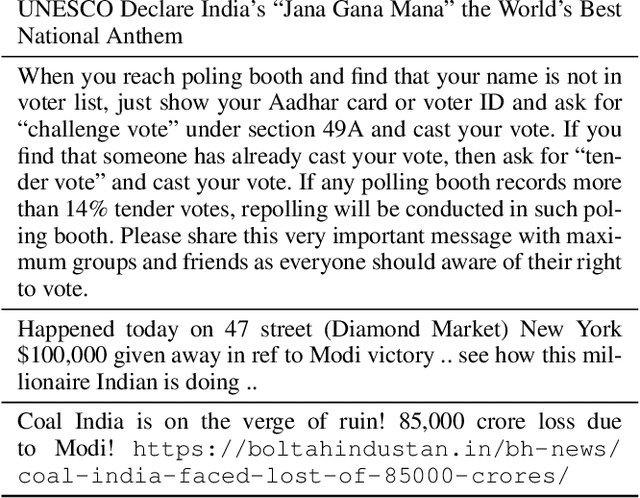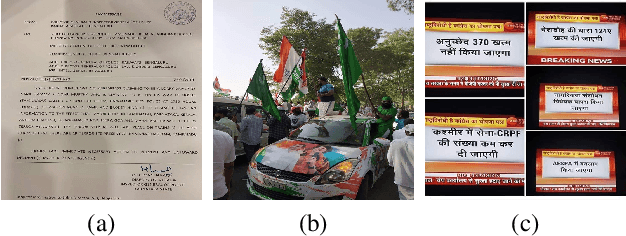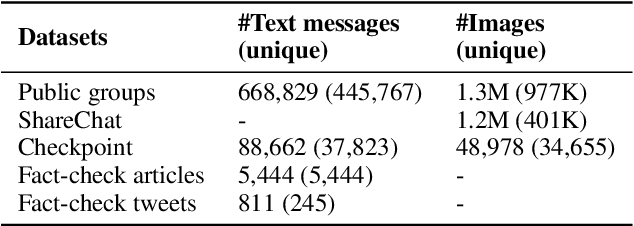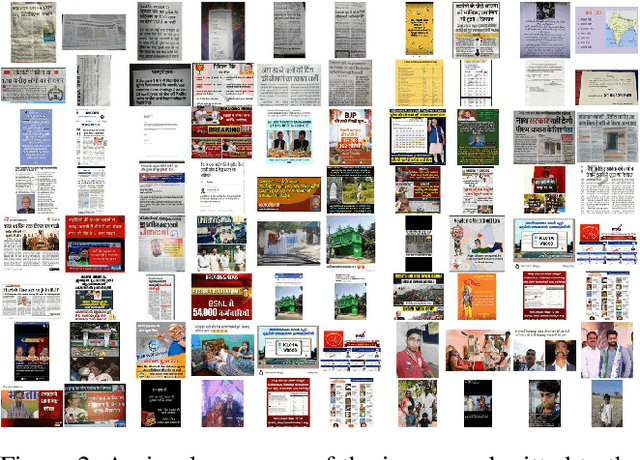Tiplines to Combat Misinformation on Encrypted Platforms: A Case Study of the 2019 Indian Election on WhatsApp
Paper and Code
Jun 08, 2021



WhatsApp is a popular chat application used by over 2 billion users worldwide. However, due to end-to-end encryption, there is currently no easy way to fact-check content on WhatsApp at scale. In this paper, we analyze the usefulness of a crowd-sourced system on WhatsApp through which users can submit "tips" containing messages they want fact-checked. We compare the tips sent to a WhatsApp tipline run during the 2019 Indian national elections with the messages circulating in large, public groups on WhatsApp and other social media platforms during the same period. We find that tiplines are a very useful lens into WhatsApp conversations: a significant fraction of messages and images sent to the tipline match with the content being shared on public WhatsApp groups and other social media. Our analysis also shows that tiplines cover the most popular content well, and a majority of such content is often shared to the tipline before appearing in large, public WhatsApp groups. Overall, the analysis suggests tiplines can be an effective source for discovering content to fact-check.
 Add to Chrome
Add to Chrome Add to Firefox
Add to Firefox Add to Edge
Add to Edge